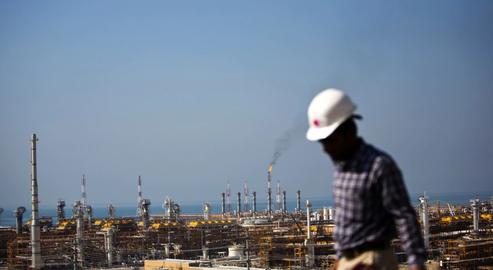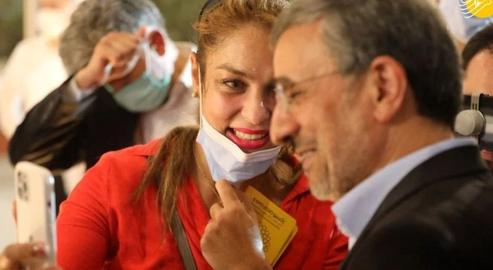Hot on the heels of the Crescent debacle, Iran is rapidly becoming embroiled in another transnational oil and gas dispute – this time with the Indian government. The contested issue is a gas field at the farthest point of Iranian territory: on the tiny Farsi Island in the Persian Gulf.
Companies affiliated with the Indian state oil company, Oil and Natural Gas Corporation Limited (ONGC), initiated oil and gas exploration near the Persian Gulf about 20 years ago. After six years, and an investment of about $85 million, this led to the discovery of reserves at Farsi Island, where Iran now runs the Farzad-A and Farzad-B gas fields.
The entire cost of the exploration was borne by the ONGC under a contract between the two countries. After the discovery, it was agreed that India would receive a 30 percent share of the profits reaped from the two fields. But the imposition of international sanctions on Iran prevented India from continuing the partnership, or from developing Farzad-B as planned.
Iran had insisted on India's presence because fields discovered near the Persian Gulf were shared with Saudi Arabia. The Saudis, who did not face any restrictions on their international trade, began to exploit the resources of the common area while Iran remained in effective stasis.
Before the sanctions, India had an incentive to participate in Iran's oil and gas industry. Now the country says it has spent millions of dollars on appraising the natural gas reserves at Farzad-B, and according to the contract, it has the right to a minimum of 30 percent of profits.
ONGC and the National Iranian Oil Company (NIOC) then failed to reach an agreement on next steps in the brief period when the JCPOA alleviated sanctions on Iran. India had offered an $11 billion investment in return for a 30-year stake in the project, but Iran’s Ministry of Oil refused. Bijan Namdar Zanganeh, the then-Minister of Petroleum, said at the time: "The offer made by the Indians will not bring any benefit for Iran in 30 years. Whatever is produced, the Indians will take for wages and the cost of their operations. Our goal in developing the fields is to make money."
The US withdrawal from the JCPOA in 2018, and renewed sanctions by the Trump administration, then made it impossible for India to explore alternative plans for Farzad-B gas field. Finally in May 2021, the Islamic Republic awarded the contract for its development – worth $1.8 billion – to its own Pars Oil and Gas Company, which is owned by the Executive Order of Imam’s Directive (Setad), a conglomerate under the control of the Supreme Leader. The transfer was made unilaterally without the consent of ONGC.
The Indian authorities now say the original contract with Iran must be honored: whenever Farzad-B is developed, 30 percent of the profits must go to the ONGC. The field is thought to have gas reserves running to 23,000 billion cubic feet. But although it has high levels of sulfur, carbon dioxide and nitrogen impurities, much higher than the South Pars field Iran shares with Qatar, its gas condensate is also much lower.
The development of Farzad-B field is therefore not a priority for the Islamic Republic, even as Saudi Arabia continues to extract resources from the same site. Farsi Island was the subject of a land dispute between the two countries during the Pahlavi era, which was eventually resolved in November 1968. Most of Farzad-A is located in Saudi territory and most of Farzad-B field is on the Iranian side.
Meanwhile, according to its new contract, Setad is supposed to develop Farzad-B in the next five years. This looks unlikely as Iran has limited resources, and very limited information to hand about Farzad-B. The environmental complexities, challenges of drilling, high temperature and pressure, and high levels of impurities, mean this will be a steep hill to climb without a partner.
Related coverage:
Iran has Been Ordered to Pay $607m to a UAE Gas Firm. Here's Why
Rouhani Fires Back at the Revolutionary Guards
Hardliners Slam Total Deal — But are Claims of Corruption and Further Sanctions Untrue?
visit the accountability section
In this section of Iran Wire, you can contact the officials and launch your campaign for various problems

























comments